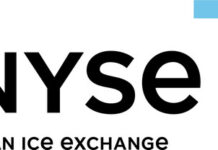The biggest difficulty is in melding the open financial systems and the convertible currencies of Hong Kong and Macau with the closed capital accounts of the nine GBA cities in southern China’s Guangdong province.
“Hong Kong has the intention, but you also need Beijing and local Guangdong regulators’ support to make that happen,” said Evan Greenberg, President and CEO of Chubb, the world’s largest publicly traded property and casualty insurer.
Almost five years after Beijing laid down the blueprint for the GBA, signs are everywhere that China’s capital controls are creaking open, at least in tiny measures that are strictly ring-fenced.
Several iterations of the Connect transborder investment scheme have been launched since 2014 to allow equities, bonds, wealth management products and exchange-traded funds (ETFs) to trade within the region.
Offshore investors traded 97 billion yuan (US$14 billion) of A-shares listed in Shenzhen and Shanghai per day on average during the first quarter in the so-called Northbound channel. In the Southbound tract, mainlanders traded HK$37.5 billion per day of Hong Kong shares, according to data from the Hong Kong stock exchange.
But success has been patchy, testing the collective patience, perseverance and commitment of companies hunting for rewards in a US$2 trillion dollar economy.
Hong Kong insurers had planned to open two customer centres in Guangdong to serve mainland Chinese customers, but the scheme has got nowhere. Macau announced a Nasdaq-like exchange in 2019, but has made no headway four years on.
Evan G. Greenberg, President and Chief Executive Officer of Chubb Limited, photographed at Chubb office in Quarry Bay. Photo: Xiaomei Chen
The biggest letdown may just be the much-heralded Wealth Management Connect (WMC) scheme, envisioned to allow rich individuals in the GBA to tap investment funds across the borders in the renminbi and Hong Kong dollar. Up to 24 Hong Kong banks were approved to sell investment funds in the city to GBA residents on the mainland through 31 onshore partner banks. Mainland residents can trade Hong Kong and Macau-based investment fund products through these banks.
Almost two years on, only 50,000 investors have taken up the scheme with 3.4 billion yuan of investments as of April. That is a mere 1 per cent of the 300 billion-yuan quota set in 2021 when the plan was launched to great fanfare.
Sales in the WMC scheme had been “lower than expected,” due to “the narrow range of products,” exacerbated by a halt in cross-border traffic within the GBA during the pandemic, said Nelson Chow, chairman of the Hong Kong Investment Funds Association, the industry guild.
“It would be better to widen the product [choices] of low- and medium-risk products to non-complex mutual funds approved by the Securities and Futures Commission, which are suitable for retail investors,” said Chow, who is also the Hong Kong managing director of AllianceBernstein, with US$680 billion of assets under management globally.
Another hindrance was in the sales process, where banks can only execute orders that are initiated by investors, effectively barring them from introducing or promoting their own products.
Nelson Chow, chairman of Hong Kong Investment Funds Association, who is also managing director of Hong Kong unit of AllianceBernstein. Photo: Handout
“The WMC can serve customers better if bankers properly introduce scheme and its products,” Chow said. “More investor education needs to be conducted. Investor education and proper training to the salespersons are essential.”
Hong Kong’s financial regulators have little appetite for risk, with the experience of the 2008 financial crisis seared in their collective memory. During the crisis, tens of thousands of the city’s pensioners and investors had HK$15.6 billion of investments wiped out in minibonds sold by the failed American bank Lehman Brothers.
The banks, brokers and funds that distributed those minibonds were accused of failing to adequately inform investors of the risks involved in the financial product. For months, angry investors held demonstrations outside the city’s legislature, the SFC’s office and at banks to demand their money back. Sixteen banks were eventually ordered to repay at least HK$6.3 billion to 29,000 buyers in 2009.
Investors who lost money in Lehman Brothers’ minibonds took to the streets of Hong Kong on July 1, 2009 to demand for their refund. Photo: Ricky Chung.
Last month, Hong Kong Monetary Authority CEO Eddie Yue Wai-man said authorities in Hong Kong and mainland China were in consensus on a number of measures that will enhance the cross-border Wealth Management Connect scheme.
“New enhancements to the Wealth Management Connect scheme will include an expansion of products, the lowering of thresholds for investors buying products via the scheme, as well as the simplification of buying procedures,” Yue said after leading a delegate of Hong Kong Association of Banks to visit Beijing.
Even before these enhancements, the scheme witnessed more account openings after the border reopened between Hong Kong and the mainland earlier this year. BOCHK’s cross-border clients’ account openings in the first four months this year were five times those logged in the same period in 2022, and 44 per cent higher than the same period in 2019, before the pandemic.
Standard Chartered Bank, another note-issuing bank, also saw a similar trend. The number of new accounts opened by GBA clients during the first half of this year are already ahead of 2022’s tally, while the amount under the Southbound Wealth Management Connect scheme from Standard Chartered clients rose by 250 per cent in the first half when compared with the second half of last year.
Standard Chartered will open new wealth management centres in Pacific Place and Mong Kok to pitch business to the growing number of mainland visitors.
HSBC, the biggest of the three note-issuing banks in the city, has opened 60 GBA Centres in Hong Kong over the past two years to promote the WMC scheme.
“HSBC saw steady Wealth Management Connect scheme business growth last year, and the pace has accelerated since the second quarter of this year,” said Daniel Chan, HSBC’s head of the Greater Bay Area.
“Southbound investors are drawn to yuan time deposits. Northbound investors mostly invest in products with a stable return, including balanced funds and low-risk wealth management products,” he said in a statement.
Private Wealth Management Association, Managing Director Peter Stein. PHOTO: SCMP
But some bankers believe the enhancements will not be far-reaching enough.
“The next wave of changes may not directly impact the private wealth management sector yet, because one of the biggest issues for us is the individual ceiling for investors, who can only invest 1 million yuan – this is just too low, ” said Peter Stein, CEO and managing director of The Private Wealth Management Association (PWMA), an industry body that represents 51 member firms including 42 private banks.
“We would really like to see that ceiling rise to HK$8 million for it to be relevant for most of our members,” Stein said.
The Wealth Management Scheme needs more products and wider sales channels too, others said.
“Insurance products such as investment-linked insurance schemes that are authorised by the SFC would be a very popular addition to Wealth Management Connect scheme and I hope that they are considered in the phase two of that development,” said Edward Moncreiffe, CEO for Hong Kong and Macau at HSBC Life.
Brokers also appealed for greater access.
“The Wealth Management Connect scheme only allows 24 Hong Kong banks to sell products, while there are 600 stockbrokers who can trade in the two Stock Connect schemes,” said Kevin Tai, head of international wealth management at KGI Asia Securities.
“It is natural to see the two Stock Connect schemes have a much higher turnover than the Wealth Management Connect scheme because of a wider sale network. Stockbrokers can also help educate investors about the investment products.”
Stephen Chan, Deputy Chief Executive, Bank of China (Hong Kong), attends the press conference over The First “Bank of China (Hong Kong) Hong Kong-Zhuhai-Macau Bridge (Hong Kong Section) Half Marathon” at Bank of China Tower, in Central. 26JUL23 SCMP / Edmond So
And there are red-tape issues to be tackled to make the Greater Bay Area mechanism more efficient.
BOCHK, the title sponsor of November 19 half marathon, wants to use the sports events to promote the integration of the GBA. For its part, the unit of China’s largest international bank has been upgrading its system and procedures to prepare for the next stage of the WMC, where the investible options will be widened and deepened.
“The bridge is an iconic structure that aims to link up the three regions in Hong Kong, Macau and Guangdong,” said BOCHK’s deputy CEO Stephen Chan Man. “Through this sponsorship, we want to tell Hong Kong’s story and to promote the integration of the Greater Bay Area.”
































